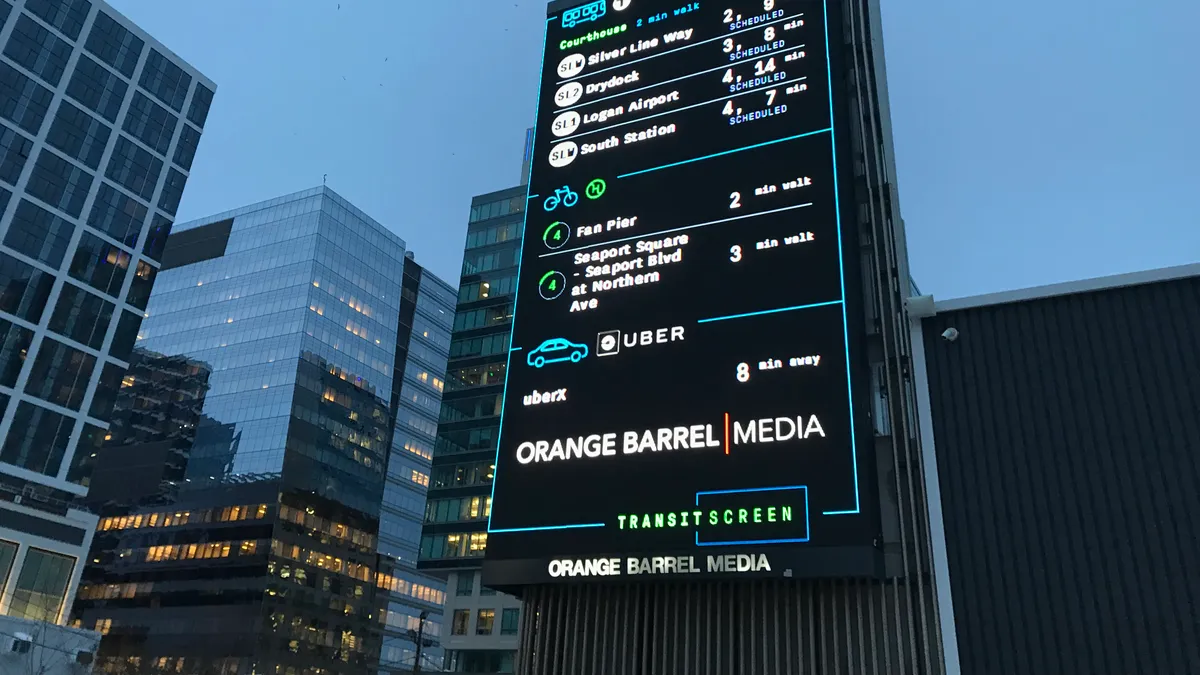Dive Brief:
- Washington, DC-based software company TransitScreen and nonprofit MobilityData announced they are collaborating on an open data platform that will share global public transit and mobility information. The partners have acquired TransitFeeds, the mobility data commons that serves 6 million data requests a year, to build the new OpenMobilityData platform.
- OpenMobilityData will fully integrate with transit data editors to allow for automatic data updates. It already boasts data from agencies across every continent.
- "The mobility industry badly needs an open data commons with integrated tools for creating and editing mobility information, just like you can edit Wikipedia," Matt Caywood, CEO of TransitScreen, said in a statement. He compared OpenMobilityData to OpenStreetMap, the free, editable map of the world.
Dive Insight:
The platform will offer an avenue for transit agencies to share and research General Transit Feed Specification (GTFS) data, like schedules and timing. GTFS originated with Google, where engineers wanted to offer transit directions across different cities similar to driving directions that are already available, but has evolved to encompass the common format for transit data.
The comparison to OpenStreetMap could be apt. The open-source geographic data platform became a valuable resource for free map data, and was picked up by companies like Facebook, Craigslist and FourSquare for their own location features. Transit agencies are looking to broadcast up-to-the-minute information, and tech companies are increasingly trying to combine that in one place.
Google Maps, for example, has integrated transit schedules into its commuting feature, showing real-time train information to help users work public transit into their commute. Microsoft has partnered with urban mobility data firm Moovit to bring its user-collected transit data to Azure Maps and other Microsoft applications. As transit agencies are trying to fold in new mobility options and build their own comprehensive apps, the opportunity to share data and study similar agencies should help.
It’s a space that TransitScreen is familiar with. The company collects local, real-time mobility information, such as transit schedules and nearby bike- and scooter-share systems, and displays it on screens in commercial buildings. "Being able to provide the information at a glance in an efficient and easy-to-use manner, that’s when you have the biggest impact," Caywood told Smart Cities Dive in 2018.











